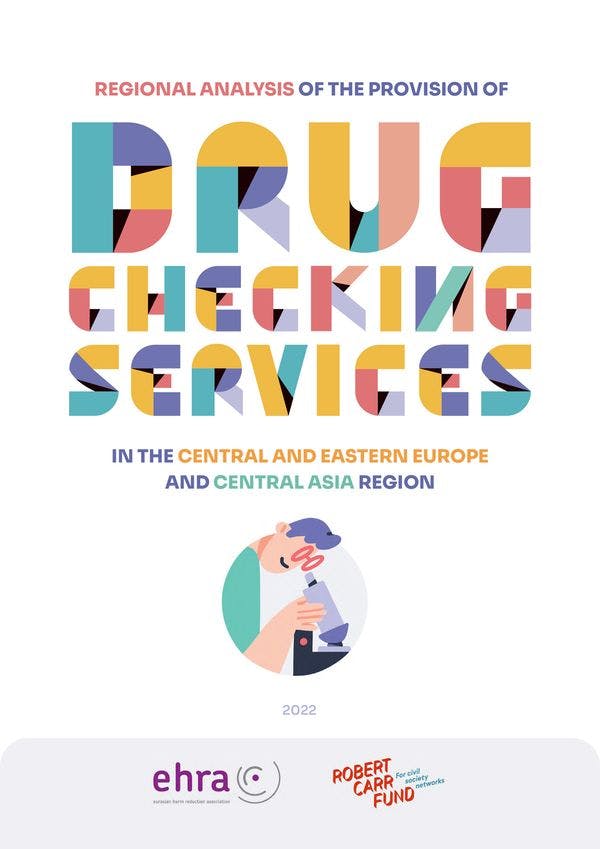Regional analysis of the provision of drug checking services in the CEECA region
The Eurasian Harm Reduction Association (EHRA) presents „Regional analysis of the provision of drug checking services in the Central and Eastern Europe and Central Asia region“.
Illicit drug use in the Central and Eastern Europe and Central Asia (CEECA) region continues to be a public health concern. The prevalence of opioids, new psychoactive substances (NPS) and amphetamine-type stimulants (ATS), including polydrug use (very often NPS combined with other traditional drugs), is observed not only among experienced drug users, but also among young people and other key populations. Injection is a common route of administration for opioids and NPS and the CEECA region has one of the highest prevalence of injecting drug use worldwide. Overdose remains highly underreported due to poor data collection and reporting mechanisms from the responsible agencies at local and national levels.
Repressive policies remain in place in relation to drug possession and supply which, in turn, affect the access and quality of harm reduction services and the implementation of novel interventions. The harm reduction philosophy is acknowledged by the vast majority of CEECA countries and recognised in national health and drug strategies. However, the harm reduction goals are mainly connected to HIV responses. The harm reduction infrastructure is mainly designed to cover the needs of people who use opioids and are not yet ready to cope with the problems of people who use NPS. Addressing the challenges of illicit drug use requires the implementation of effective and innovative strategies and interventions.
Drug checking services are not only a harm reduction intervention but also a valuable monitoring mechanism that provides reliable data on the drug market, its changes and developments, supporting policymakers and public health experts to respond to newly emerging needs.
In the region, drug checking services are in the infantile phase, with small-scale interventions operating in several countries supported by the government or donor initiatives and private donations. They operate in a legal grey area, limited in terms of modes of operation, with staff not allowed to handle drugs and clients at risk of prosecution.
Overcoming barriers that impede the adoption, leverage and scaling-up of drug checking services requires a careful examination of the country’s political and social context. However, the evidence currently available suggests that drug checking services can be piloted and/or implemented in the CEECA region, taking into consideration some recommendations from countries where these programmes have been operating for many years.
